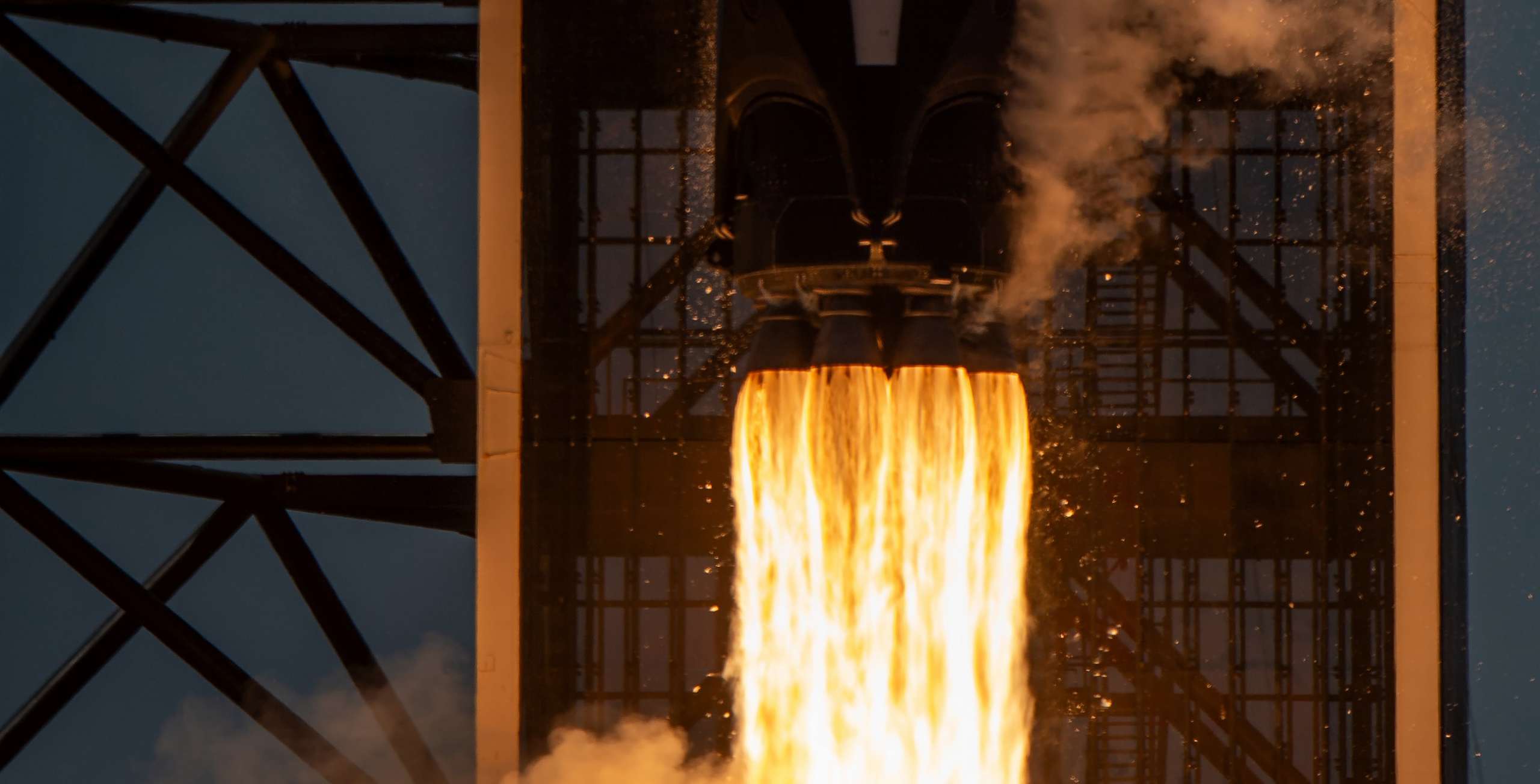
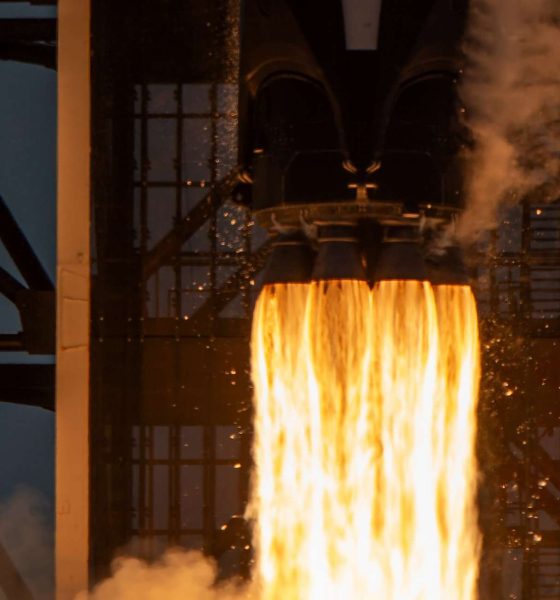
News
SpaceX to ring in Crew Dragon’s success with a Starlink launch and landing
SpaceX wants to ring in the historic success of its Crew Dragon spacecraft the only way it knows how – sending 60-satellite Starlink satellites into orbit and landing another Falcon booster as few as three days after the company’s inaugural astronaut launch.
The mission – deemed Starlink-8 – will be SpaceX’s eighth Starlink launch overall and the seventh launch of upgraded v1.0 satellites, pushing the company a mission past the halfway point towards its first internet beta test. If successful, it will raise SpaceX’s ever-growing constellation to some ~475 satellites strong, approximately 400 spacecraft shy of the ~840 COO and President Gwynne Shotwell believes are necessary to begin rolling out Starlink internet service.
Delayed from May 7th to the 17th, 18th, and 19th before SpaceX called the mission off to give Crew Dragon’s inaugural astronaut launch space to breathe, Starlink-8 is now scheduled to launch no earlier than 9:25 pm EDT on June 3rd (02:25 UTC, 4 June). Aside from taking SpaceX another step towards an operational Starlink constellation and source of income independent of launches, the launch is also on track to mark several more critical milestones both in orbit and back on (or near) the ground.
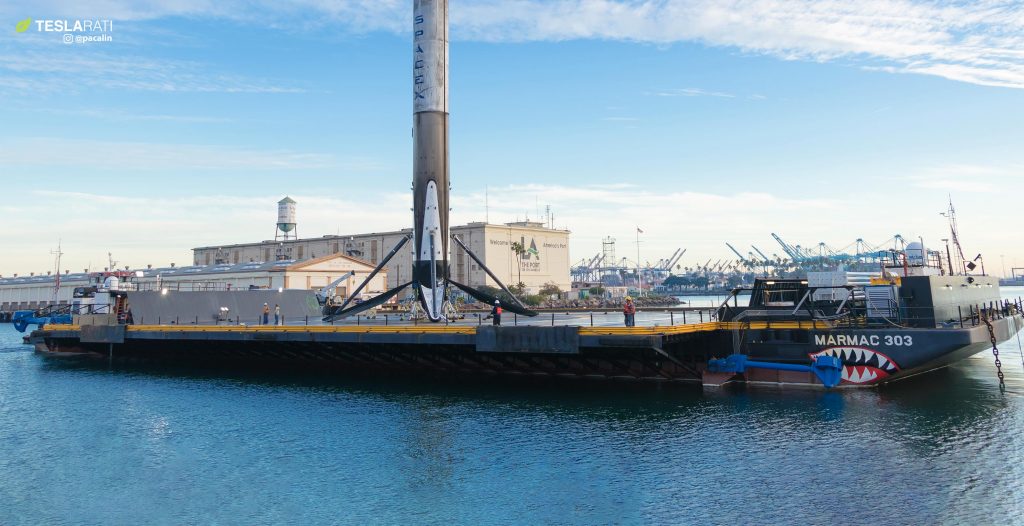
By far the most notable (and unexpected) first of Starlink-8 is related to booster recovery plans. On May 30th, the very same day SpaceX performed its first astronaut launch, drone ship Just Read The Instructions (JRTI) was spotted heading out into the Atlantic Ocean, deck cleared for the first time in the better part of a year. While initially assumed to be another one of a few sea trials the radically upgraded drone ship has performed in the last few weeks, news broke hours later that JRTI was actually heading out to sea for its first rocket recovery attempt in more than 16 months.
Replacing SpaceX’s original East Coast-based drone ship of the same name, the current iteration of Just Read The Instructions debuted in the Pacific Ocean in January 2016 with an explosively-unsuccessful booster landing after launching the Jason-3 weather satellite. The ship’s next landing attempt would come one year later and kick of seven consecutive booster landings completed over the following 24 months, followed shortly by a temporary pause of SpaceX’s West Coast launch presence.
SpaceX intends to perform its limited manifest of future Californian launches while relying entirely on return-to-launch-site (RTLS) rocket booster recoveries back onshore, freeing up drone ship JRTI to head to Florida to support the company’s far busier East Coast manifest. After transiting the Panama Canal in August 2019 and undergoing several months of refits in Louisiana, JRTI arrived in Florida in December 2019 and has been gradually upgraded at Port Canaveral over the last few months. Now, outfitted with a new Octagrabber robot and thrusters and power supplies that dwarf those on SpaceX’s other drone ship, SpaceX has apparently given JRTI the go-ahead to attempt its first booster recovery in almost a year and a half.
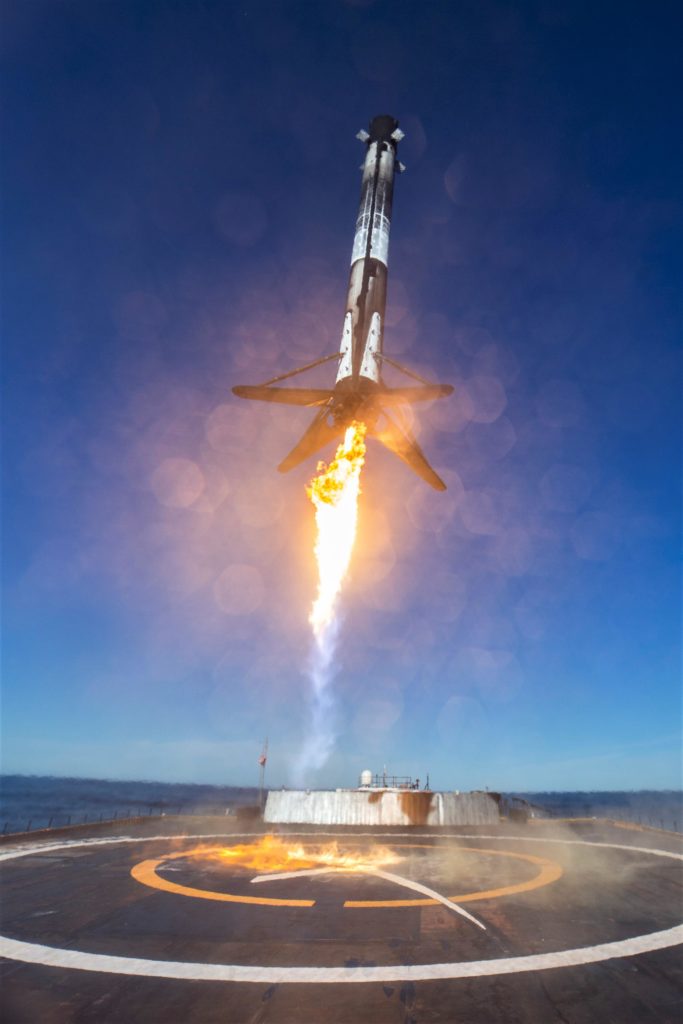
Visors, reuse, rideshares and more
Additionally, Starlink-8 is scheduled to debut SpaceX’s first “VisorSat”, a Starlink satellite modified with a visor specifically designed to prevent sunlight from reflecting off of the shiny satellites and disrupting ground-based astronomy. If successful, all future Starlink satellites SpaceX manufactures will include the modification, hopefully mitigating or wholly eliminating Starlink’s impact on astronomy.
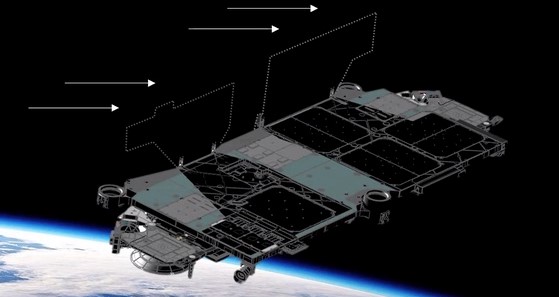
Starlink-8 is also expected to debut SpaceX’s potentially game-changing addition of rideshare slots for small satellites aboard a large portion of the company’s planned Starlink launches. Earth imaging company Planet is the first announced customer, with three ~125 kg (~300 lb) SkySat imaging satellites manifested on Starlink-8. Potentially costing Planet just $1 million apiece, the launch option could easily become industry-leading if SpaceX can regularly include several hundred kilograms of 3rd-party satellites on each of the 20+ Starlink missions it’s likely to launch annually.
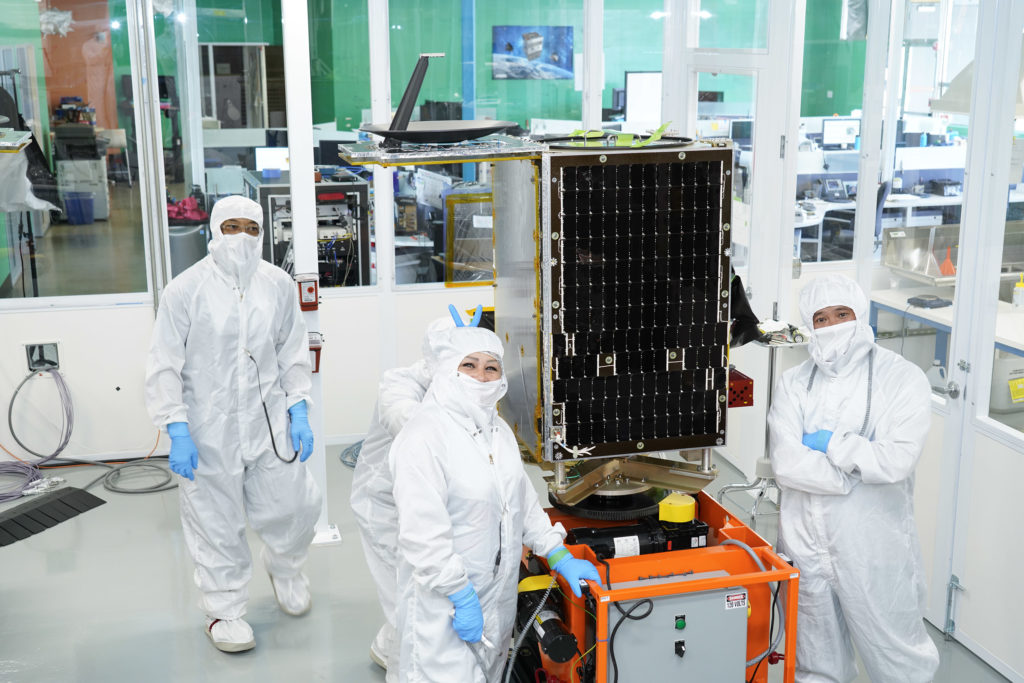
Finally, Next Spaceflight says that Falcon 9 booster B1049 has been assigned to support Starlink-8, meaning that the mission will be the second time ever that a Falcon 9 booster has attempted its fifth orbital-class launch. Starlink-8 will come two and a half months after improper refurbishment caused Falcon 9 booster B1048 to suffer an in-flight engine failure during its fifth launch. While the booster changed its flight program on the fly to ensure the Starlink-6 mission was successfully completed, B1048 did so at the cost of its landing propellant, ending the booster’s productive life with a violent crash somewhere on the surface of the Atlantic Ocean.
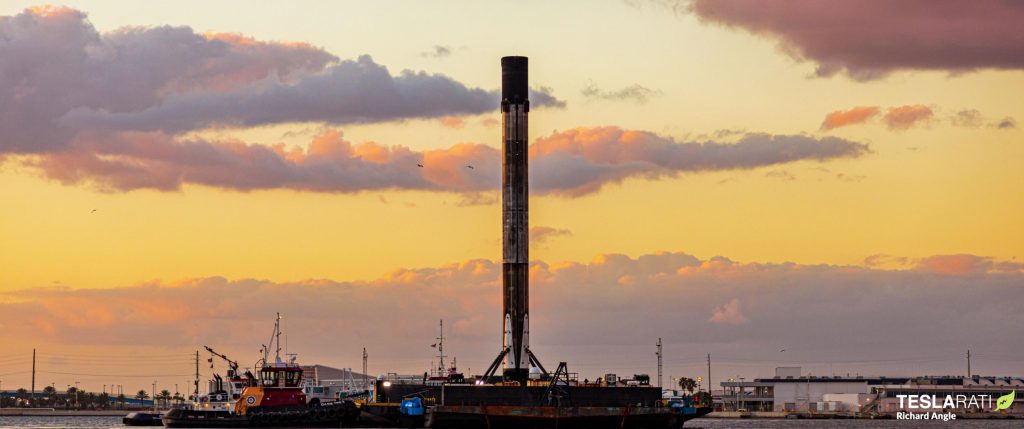
If B1049 can successfully launch and land for the fifth time on June 3rd, it will become the pack leader of SpaceX’s fleet of reusable rockets. With a safe landing, B1049 can prepare to become the first booster to launch six times, hopefully proving that Falcon 9 can safely fly six, seven, eight, or more times – perhaps one day cresting 10 launches to achieve Falcon 9 Block 5’s design goal.
Check out Teslarati’s Marketplace! We offer Tesla accessories, including for the Tesla Cybertruck and Tesla Model 3.

News
Tesla FSD (Supervised) fleet passes 8.4 billion cumulative miles
The figure appears on Tesla’s official safety page, which tracks performance data for FSD (Supervised) and other safety technologies.

Tesla’s Full Self-Driving (Supervised) system has now surpassed 8.4 billion cumulative miles.
The figure appears on Tesla’s official safety page, which tracks performance data for FSD (Supervised) and other safety technologies.
Tesla has long emphasized that large-scale real-world data is central to improving its neural network-based approach to autonomy. Each mile driven with FSD (Supervised) engaged contributes additional edge cases and scenario training for the system.
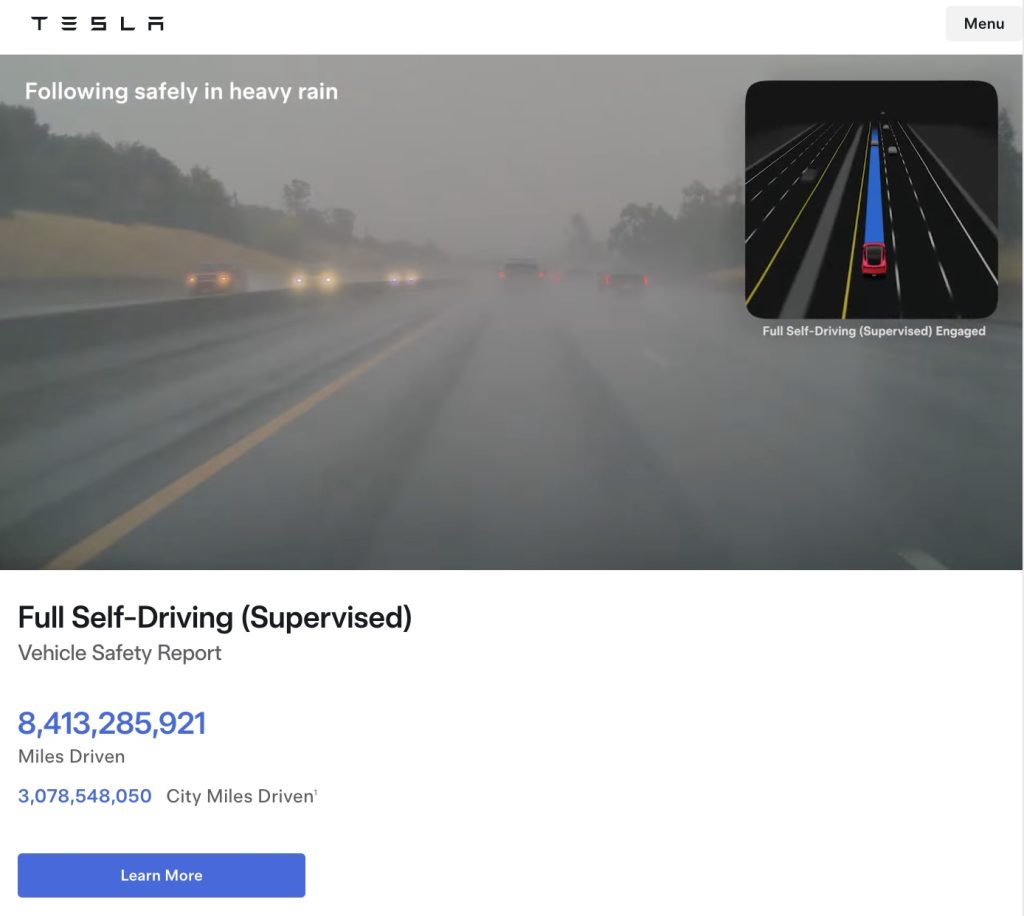
The milestone also brings Tesla closer to a benchmark previously outlined by CEO Elon Musk. Musk has stated that roughly 10 billion miles of training data may be needed to achieve safe unsupervised self-driving at scale, citing the “long tail” of rare but complex driving situations that must be learned through experience.
The growth curve of FSD Supervised’s cumulative miles over the past five years has been notable.
As noted in data shared by Tesla watcher Sawyer Merritt, annual FSD (Supervised) miles have increased from roughly 6 million in 2021 to 80 million in 2022, 670 million in 2023, 2.25 billion in 2024, and 4.25 billion in 2025. In just the first 50 days of 2026, Tesla owners logged another 1 billion miles.
At the current pace, the fleet is trending towards hitting about 10 billion FSD Supervised miles this year. The increase has been driven by Tesla’s growing vehicle fleet, periodic free trials, and expanding Robotaxi operations, among others.
With the fleet now past 8.4 billion cumulative miles, Tesla’s supervised system is approaching that threshold, even as regulatory approval for fully unsupervised deployment remains subject to further validation and oversight.
Elon Musk
Elon Musk fires back after Wikipedia co-founder claims neutrality and dubs Grokipedia “ridiculous”
Musk’s response to Wales’ comments, which were posted on social media platform X, was short and direct: “Famous last words.”
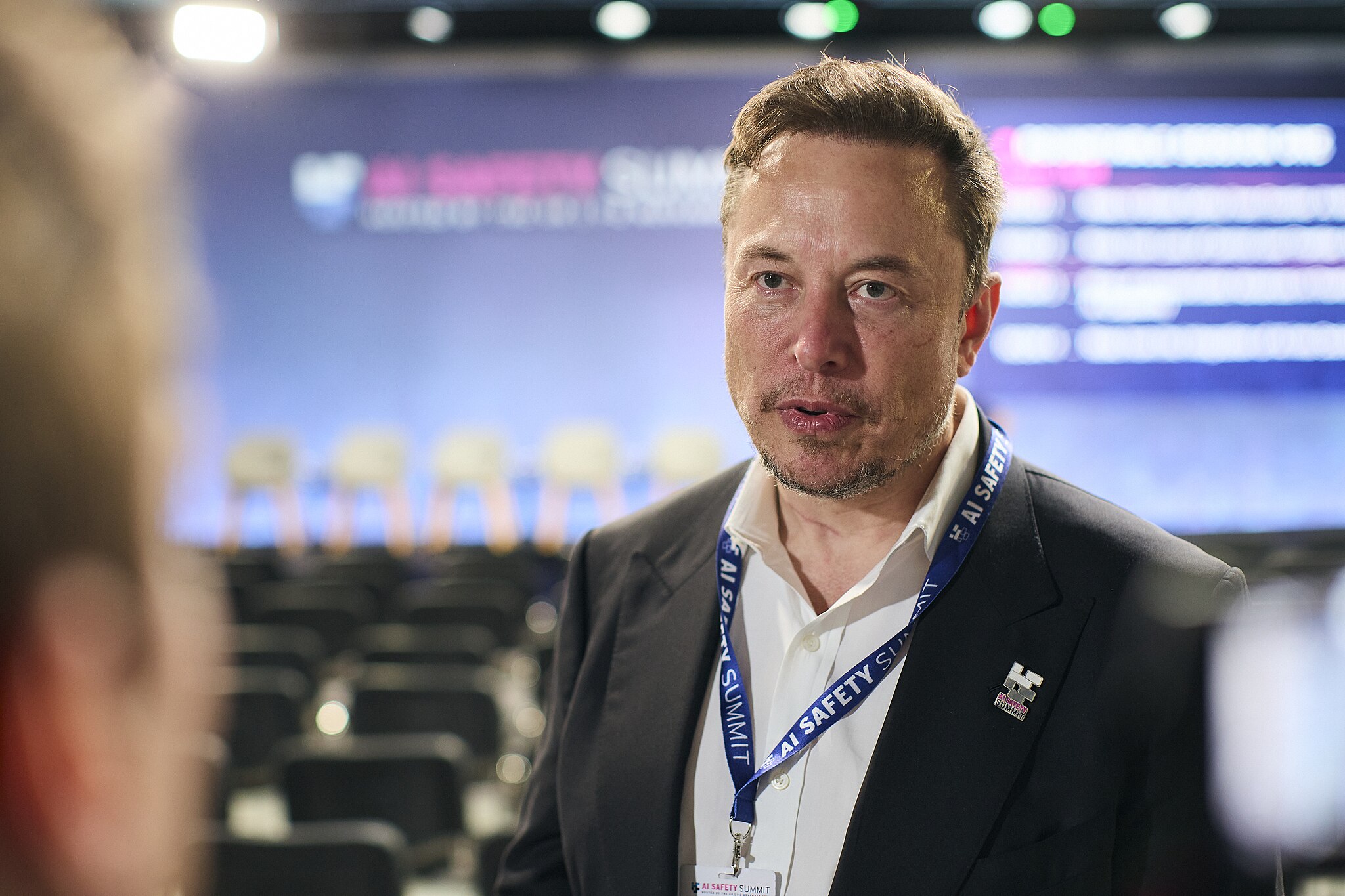
Elon Musk fired back at Wikipedia co-founder Jimmy Wales after the longtime online encyclopedia leader dismissed xAI’s new AI-powered alternative, Grokipedia, as a “ridiculous” idea that is bound to fail.
Musk’s response to Wales’ comments, which were posted on social media platform X, was short and direct: “Famous last words.”
Wales made the comments while answering questions about Wikipedia’s neutrality. According to Wales, Wikipedia prides itself on neutrality.
“One of our core values at Wikipedia is neutrality. A neutral point of view is non-negotiable. It’s in the community, unquestioned… The idea that we’ve become somehow ‘Wokepidea’ is just not true,” Wales said.
When asked about potential competition from Grokipedia, Wales downplayed the situation. “There is no competition. I don’t know if anyone uses Grokipedia. I think it is a ridiculous idea that will never work,” Wales wrote.
After Grokipedia went live, Larry Sanger, also a co-founder of Wikipedia, wrote on X that his initial impression of the AI-powered Wikipedia alternative was “very OK.”
“My initial impression, looking at my own article and poking around here and there, is that Grokipedia is very OK. The jury’s still out as to whether it’s actually better than Wikipedia. But at this point I would have to say ‘maybe!’” Sanger stated.
Musk responded to Sanger’s assessment by saying it was “accurate.” In a separate post, he added that even in its V0.1 form, Grokipedia was already better than Wikipedia.
During a past appearance on the Tucker Carlson Show, Sanger argued that Wikipedia has drifted from its original vision, citing concerns about how its “Reliable sources/Perennial sources” framework categorizes publications by perceived credibility. As per Sanger, Wikipedia’s “Reliable sources/Perennial sources” list leans heavily left, with conservative publications getting effectively blacklisted in favor of their more liberal counterparts.
As of writing, Grokipedia has reportedly surpassed 80% of English Wikipedia’s article count.
News
Tesla Sweden appeals after grid company refuses to restore existing Supercharger due to union strike
The charging site was previously functioning before it was temporarily disconnected in April last year for electrical safety reasons.

Tesla Sweden is seeking regulatory intervention after a Swedish power grid company refused to reconnect an already operational Supercharger station in Åre due to ongoing union sympathy actions.
The charging site was previously functioning before it was temporarily disconnected in April last year for electrical safety reasons. A temporary construction power cabinet supplying the station had fallen over, described by Tesla as occurring “under unclear circumstances.” The power was then cut at the request of Tesla’s installation contractor to allow safe repair work.
While the safety issue was resolved, the station has not been brought back online. Stefan Sedin, CEO of Jämtkraft elnät, told Dagens Arbete (DA) that power will not be restored to the existing Supercharger station as long as the electric vehicle maker’s union issues are ongoing.
“One of our installers noticed that the construction power had been backed up and was on the ground. We asked Tesla to fix the system, and their installation company in turn asked us to cut the power so that they could do the work safely.
“When everything was restored, the question arose: ‘Wait a minute, can we reconnect the station to the electricity grid? Or what does the notice actually say?’ We consulted with our employer organization, who were clear that as long as sympathy measures are in place, we cannot reconnect this facility,” Sedin said.
The union’s sympathy actions, which began in March 2024, apply to work involving “planning, preparation, new connections, grid expansion, service, maintenance and repairs” of Tesla’s charging infrastructure in Sweden.
Tesla Sweden has argued that reconnecting an existing facility is not equivalent to establishing a new grid connection. In a filing to the Swedish Energy Market Inspectorate, the company stated that reconnecting the installation “is therefore not covered by the sympathy measures and cannot therefore constitute a reason for not reconnecting the facility to the electricity grid.”
Sedin, for his part, noted that Tesla’s issue with the Supercharger is quite unique. And while Jämtkraft elnät itself has no issue with Tesla, its actions are based on the unions’ sympathy measures against the electric vehicle maker.
“This is absolutely the first time that I have been involved in matters relating to union conflicts or sympathy measures. That is why we have relied entirely on the assessment of our employer organization. This is not something that we have made any decisions about ourselves at all.
“It is not that Jämtkraft elnät has a conflict with Tesla, but our actions are based on these sympathy measures. Should it turn out that we have made an incorrect assessment, we will correct ourselves. It is no more difficult than that for us,” the executive said.








